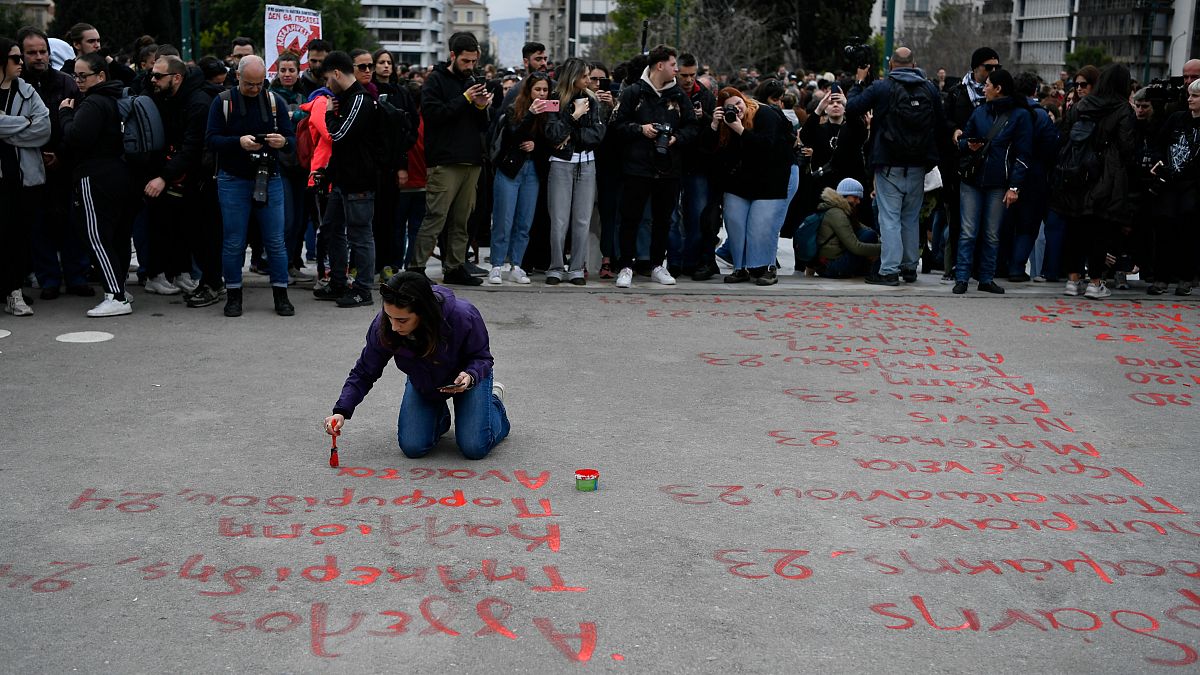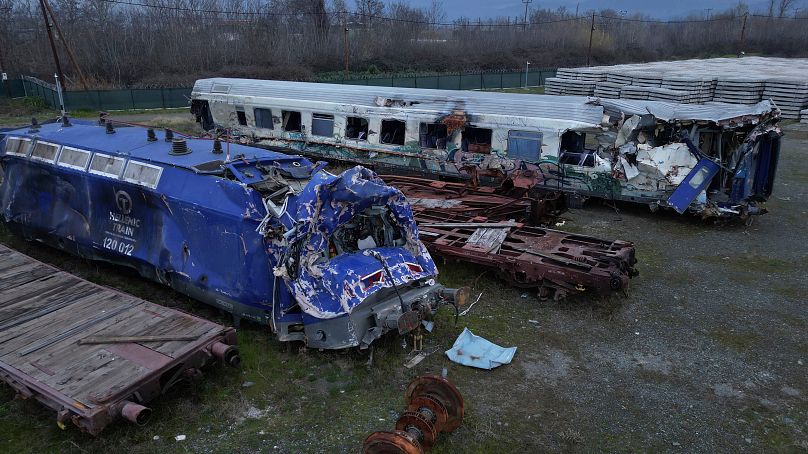The first anniversary of Greece’s train disaster in Tempe on the 28th February was marked by violent protests and widespread strikes across trains, ferries and public transport.
On the 28th of February last year Greece was left mourning when when a passenger train carrying 350 people collided with a freight train operating on the same track.
The two trains were operating at high speed before they crashed into each other, with the front carriages bursting into flames upon impact. Only one young man was rescued from the worst impacted carriages, who remains in hospital.
The train crash, the deadliest in the nation's history, prompted three days of mourning and nationwide protests.
A year later, the streets of Athens are full of demonstrators arguing that the ongoing inquiry has barely provided justice for the victims' families or filled the gaps in an unsafe transport system.
Protesters gathered outside the Greek Parliament in Athens and chanted ‘murderers, murderers’, as they wrote the names of the victims on the ground in red paint. Similar protests in Thessaloniki, the country’s second-largest city, led to riot police using tear gas as protesters threw stones and molotov cocktails.
Daphne Tolis, a freelance producer who lives in Athens, was with the 20,000 people who marched through the city centre, with some heading towards the central offices of Hellenic Train.
“Anger is one of the main feelings felt across the Greeks as we all know, more or less, the pathogenies of the Greek state, it’s something commonly discussed among us. But anger builds up when justice is not served and the country’s lawmakers are not called to account and continue to enjoy immunity from prosecution simply because they are members of the Greek Parliament," she told Euronews.
According to Greek law, MPs are immune from external prosecution, and potential misconduct can only be investigated by the Parliament. Critics hold the government partially responsible for the tragedy, criticising its lack of investment in the railway system, which they note was missing essential safety features required by European Union law.
For some, the crash is intrinsically linked to the privatisation of Greece’s state rail company, parts of which were sold off to the Italian firm Ferrovie dello Stato during the country's debt crisis. Several argue that the consequences of this sale meant that the safety of passengers was demoted in priority and features of the rail network that ensured safety were subsequently underfunded.
Alongside protests, the umbrella union of civil servants ADEDY, representing half a million state employees, called on the public sector to strike on Wednesday. Other trade unions also organised strike action, leading to clashes between protesters and police officers in the Greek capital.
Posting on X, social media users expressed frustration with what they see as a lack of justice for the 57 victims, most of whom were university students.
The Greek government has implied that the trial following a year-long inquiry will start in June. Greek Prime Minister Kyriakos Mitsotakis said, in a statement marking the anniversary, ‘It may, however, offer some relief when all the causes of the evil are brought to light. When all doubts are dispelled. When even the most absurd rumours are disproved. And, above all, when the guilty are punished. And that will happen".
Currently, 34 railway workers, including the stationmaster on duty when the two trains collided, have been detained.
Many of the relatives of the victims have voiced their distrust in the official investigation and have commissioned their own investigators who argue that, among other things, the freight train involved in the crash was carrying illegal cargo.
The Hellenic Railways Organisation (OSE) which operates Greece’s railway network claims the network's safety has been enhanced with the installation of 300 infrared cameras in tunnels since the crash and it's making progress on implementing safety systems, though they acknowledge more improvements are still needed.

